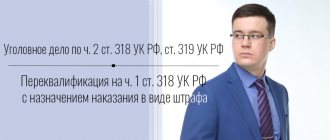An important feature of the functioning of the penitentiary system in our country is the possibility of pardoning a criminal if he realizes the gravity of his offense and the inadmissibility of committing a similar crime in the future. Meanwhile, amnesty is an exceptional and very rare phenomenon. Much more often, prisoners apply for release to whom retaliatory measures cannot be applied due to their health status. The law approved a special list of diseases that prevent people from serving their sentences in a colony. We are talking about pathologies with which the prisoner risks not surviving the prison term.
In the criminal law of the Russian Federation, there is a legal mechanism for releasing a person from staying in places not so remote. In the event of an illness that affects the mental or physical health of a prisoner, the prisoner or his legal representatives have every chance of obtaining a legal deferment of the sentence or even final release.
Can they be released from prison due to illness? Legal grounds
The Criminal Code of the Russian Federation (Article 81) defines three circumstances in which a prisoner may be assigned a medical examination in case of suspicion of a pathology from the list of diseases that prevent the serving of a sentence of arrest in a colony:
- mental disorders;
- damage to internal organs and serious functional disorders of the body caused by infectious, oncological, genetic pathologies;
- illness of a serviceman that causes incapacity for work.
The first category includes psycho-emotional disorders that lead to loss of control over one’s behavior and the ability to adequately assess its consequences for others. The petition is submitted, as a rule, by the administration of the colony or the legal representative of the prisoner (lawyer). The conclusions of the medical commission and the personal file of the convicted person must be attached to the petition.
The algorithm for submitting a petition in case of detection of a serious illness is similar. However, in the first case, the patient can leave the colony almost unconditionally. The court is obliged to “automatically” release a person with mental disorders.
What are the chances of being released?
Things will be a little different if the reason for the petition is any violation of physical health from the list of diseases that prevent the serving of a sentence of arrest. The decision is approved by the court, and therefore the fate of the sick prisoner is only in the hands of justice. There are often cases when judges, based on the case materials and taking into account the severity of the illness, the term of imprisonment and the personal characteristics of the prisoner, decided that he did not need an amnesty, since his health condition supposedly allowed him to continue to stay in the colony. In this case, the convicted have only one option: try to appeal the verdict.
It is also worth noting that exemption from stay in a correctional colony is conditional. Having recovered, the released person will have to return to the zone, unless the statute of limitations for the crime has expired, in accordance with the provisions of the Criminal Code of the Russian Federation.
If the defendant's mental disorder arose after he committed a crime, he is exempt from legal punishment. If a prisoner falls ill while already in prison, he may also be released. A prisoner who does not realize the danger of his actions to the public is sent by the court for compulsory medical treatment to a psychiatric dispensary.
Exemption from punishment for health reasons: concept
Obtaining exemption from punishment due to the presence of illness is permitted in accordance with Art. 81 of the Criminal Code of the Russian Federation.
Please note! The following categories of persons can receive exemption from punishment:
- Those who have lost the ability to understand the consequences of their actions and their danger after they have committed a crime. This category may also include persons who have ceased to be aware of the consequences of their actions during the investigation process, the passing of a sentence by a court, or already serving a sentence;
- Those who have acquired a disease established by the Government of the Russian Federation after committing a crime;
- Those who are not suitable for military service, in accordance with the requirements for the level of health of military personnel.
Unfit for military service
The issue of releasing military personnel from prison deserves special attention. The list of diseases that prevent the serving of a sentence is also approved for this category of prisoners. A serviceman who is under arrest is also released if a serious illness is confirmed.
An illness that makes a person unfit for further service is also grounds for mitigating the sentence. An unserved sentence in a correctional colony may be replaced by a fine or deprivation of a title or award. By analogy with actions, the decision on this type of release is unconditional and irreversible and is final.
Treatment instead of retribution
Undoubtedly, there is no point in punishing a person who has lost his legal capacity, is unable to answer for his actions, and has no moral, ethical, ethical ideas about restrictions and prohibitions due to a mental disorder. An individual with such violations will not be able to understand why he is charged with certain educational measures. Alienation from society is an inevitable measure, and a person should not be subject to corrective measures in correctional institutions. In order to “correct” a mentally ill person and direct him on the right path, it is necessary to first restore to him the ability to control his actions, of course, by undergoing treatment in a psychiatric clinic.
It is inhumane to subject a terminally or seriously ill person to prison, since the punishment deprives him of the opportunity to undergo full treatment and negates even the minimal chances of recovery. The life of such a prisoner hangs in the balance, and by agreeing to expose him to the risk of death, the penitentiary system automatically exceeds the permissible degree of punishment for the crime committed, which is completely unacceptable.
Legal significance of exemption from criminal punishment and liability
Obviously, punishing a person who does not understand the consequences of the crime committed is not only meaningless. Such a person does not understand why he is subject to the measures of influence that are provided for by criminal law, and therefore he will not be able to adjust his behavior in the conditions of non-specialized correctional institutions.
Before applying measures aimed at correcting his behavior to a mentally ill criminal, he needs to regain the ability to recognize the reality of the events taking place and the ability to give a sober assessment of his behavior. This ability is restored through treatment in special psychiatric hospitals.
Attention! Our qualified lawyers will assist you free of charge and around the clock on any issues. Find out more here.
Qualifying principles
It is possible to talk about the possibility of deferring a sentence or release only if there are clear indications for undergoing a medical commission and a medical examination. Only experts are able to give an objective assessment of the health status of the convicted person. At the same time, the most important condition for the occurrence of legal grounds for release is proof of the absence of simulation of an illness that prevents serving a sentence in a colony. The list of diseases is approved by the Government of the Russian Federation. The document was last amended on May 19, 2022. The resolution on the list of diseases that prevent the serving of a sentence is based on the norms and provisions of the Criminal Code of the Russian Federation, according to which the grounds for release or mitigation of punishment should not depend on the will of the defendant, and therefore self-harm is not a reason for exemption from punitive measures.
We should focus on this point: the suspension of the sentence cannot be considered final. If a person manages to restore physical or mental health, he will have to serve the remaining sentence provided by the court verdict. A criminal will be able to avoid retribution only if he remains ill until the statute of limitations for the crime and punishment for it expires.
By the way, compulsory medical treatment of a mentally ill person is comparable to serving in correctional institutions. Every day spent in a hospital is equivalent to being in a colony.
general information
By providing the opportunity for justice authorities to exempt individuals who have broken the law from retribution due to poor health, legislators have the following justified motives for this:
- A person who has committed actions classified as a crime, but is not aware of himself as a reasonable person and responsible for the consequences of his actions, that is, mentally insane, is not able to perceive the corrective effect of punishment.
- The body of subjects who fall ill with a serious illness after they have committed an atrocity may not withstand the hardships of transfers and serving a sentence in a colony. That is, the consequence of imposing punishment on a seriously ill individual may be not just death, but accompanied by suffering due to being in difficult conditions of imprisonment, which is not acceptable in a humane society.
- The threat to the health and life of others is also an important point that must be taken into account by the court when pronouncing a sentence that could condemn not only the attacker to torment and death, but also other people, including employees of the penitentiary system.
The following video will tell you what the Criminal Code of the Russian Federation says about exemption from punishment due to illness:
What diseases are considered to be barriers to serving a sentence?
The list of diseases is approved, as already noted, by the Government of the Russian Federation. The current list of illnesses, which give the right not only to release from custody, but also to the termination or deferment of prosecution, the abolition of punishment or the postponement of its execution, was adopted in February 2004. In the latest edition, the list of diseases that prevent the serving of sentences was increased to 57 positions, while previously it included only 41 names of pathologies. The changes made have significantly affected the capabilities of the legal corps involved in cases of amnesties, parole and release due to illness. It is inappropriate to present the entire list of diseases that prevent serving a sentence in the form of an excerpt from an official document, but it is still necessary to mention the main categories.
In addition to mental disorders that manifest themselves as insanity and inappropriate behavior (including psychosis, bipolar disorders, schizophrenia, dementia), it is possible to be freed from the punitive measures of the penitentiary system due to other pathologies. Briefly, the list of diseases that prevent arrest and serving a sentence in a colony is as follows:
- Long-term course of chronic diseases caused by tubercle bacilli in severe form.
- Oncological pathologies that are not subject to surgical treatment to remove tumors.
- Diseases of the endocrine system, including complications of diabetes mellitus, adrenal insufficiency, gout, tumors of the pituitary gland and hypothalamus.
- Functional disorders of the central and peripheral nervous systems.
- Blood diseases with complications.
- Cardiovascular diseases occurring in severe forms.
- Chronic lung pathologies.
- Hemorrhagic types of diseases of the gastrointestinal tract, abdominal organs.
- Kidney and liver failure.
- Diseases of the genitourinary area.
- Dysfunctions of the musculoskeletal system with pronounced and persistent disruptions in the functioning of other organs and systems.
- Limb amputations.
- AIDS.
Everything about criminal cases
Go to list of materials
Government Decree of February 6, 2004 N 54 (as amended on May 19, 2022 N 598)
| Normative base - Part 2 81 of the Criminal Code in case of physical illness, the court may release - but is not obliged (this is not imperative) - Part 6 175 PEC filing an application for sick leave — clause 6 397 Code of Criminal Procedure release due to illness in execution of a sentence TABLE OF CONTENTS Direction rules convicts for medical examination — P. Referral Rules No. 54 grounds for referral for a medical examination — clause 5 Rules of direction No. 54 repeated medical examination Medical rules examination for release ( List of diseases preventing the serving of a sentence OTHER materials Exemption from punishment for illness: conditions and mechanism ( Health of the culprit , accounting when imposing punishment ( Does not preclude sanity disorder, mitigating circumstance ( |
RULES
referrals for medical examination of convicts applying for release (presented for release) from serving their sentence due to illness
(ed. 02/03/2020)
1) These Rules determine the procedure for sending for medical examination convicts applying for release (submitted for release) from serving a sentence due to the onset of a mental disorder or other serious illness.
2) The grounds for sending a convicted person for a medical examination are:
a) the appeal of a convicted person who has developed a mental disorder that prevents him from serving his sentence, or his legal representative, to the court with a petition to release him from further serving his sentence, as well as the appeal of a convicted person who has fallen ill with another serious illness that prevents him from serving his sentence, to the court with a petition for releasing him from further serving his sentence;
b) preparation by the head of the institution or body executing punishment of a proposal for the release of the convicted person from further serving the sentence due to the onset of a mental disorder or other serious illness.
3) The head of the institution or body executing punishment, if there are grounds specified in paragraph 2 of these Rules:
- requests from medical organizations (structural divisions of medical organizations) of the penal system of the Russian Federation medical documents, copies thereof, reflecting the state of health of the convicted person, the presence of a disease included in the list of diseases that prevent the serving of a sentence;
- and no later than the working day following the day of their receipt, sends the listed documents to the medical organization of the penal system of the Russian Federation for a medical examination of the convicted person.
The convicted person (his legal representative) may be presented with medical documents, copies thereof, reflecting the state of health of the convicted person, the presence of a disease included in the list of diseases that prevent the serving of a sentence, which are also sent to the medical organization of the penal system of the Russian Federation.
4) A referral for a medical examination is drawn up in a form approved by the federal executive body, which carries out the functions of developing and implementing state policy and legal regulation in the field of execution of criminal penalties, in agreement with the federal executive body, carrying out the functions of developing and implementing state policy and legal regulation in the field of health care.
5) Sending a convicted person for a medical examination may be carried out in accordance with these Rules, regardless of the time that has passed since the date of the previous examination.
RULES
medical examination of convicts applying for release
(subject to release) from serving a sentence due to illness
(ed. 02/03/2020)
1) These Rules determine the procedure for medical examination of convicts applying for release (submitted for release) from serving a sentence due to the onset of a mental disorder or other serious illness.
2) A medical examination of a convicted person is carried out by a medical commission of a medical organization of the penal system of the Russian Federation. To conduct consultations on the medical examination of a convicted person, medical specialists from medical organizations of state or municipal health care systems may be involved in accordance with the legislation of the Russian Federation in the field of protecting the health of citizens.
3) The medical commission, no later than 10 working days from the date of receipt of the referral for a medical examination and the documents attached to it, makes a decision on the date, time, place and conditions of the medical examination (in a hospital or outpatient) and informs the head of the institution or body executing the punishment, during the working day following the day the decision is made. Medical examination is carried out within 10 working days from the specified date.
If it is necessary to obtain additional information about the state of health of the convicted person, as well as to conduct an additional examination of the convicted person, the period for conducting a medical examination may be extended, but not more than by 1 month.
4) Upon receipt of the decision of the medical commission at the institution executing punishment, the head of the institution executing punishment, within the working day following the day of its receipt, notifies the convicted person or his legal representative, lawyer (with the written consent of the convicted person or his legal representative) about the date , time and place of the medical examination.
5) A necessary precondition for conducting a medical examination is the informed voluntary consent given by the convicted person or his legal representative to conduct a medical examination on the basis of complete information provided by a medical worker in an accessible form about the methods of medical examination and medical research carried out during the medical examination, the risk associated with them, possible options for medical intervention, as well as its consequences.
The refusal of the convicted person to undergo a medical examination is reflected in the conclusion specified in paragraph 11
of these Rules.
6) Conducting a medical examination without the informed voluntary consent of the convicted person or his legal representative is permitted in cases established by the legislation of the Russian Federation in the field of protecting the health of citizens.
7). Giving informed voluntary consent to a medical examination is formalized in the manner established by the legislation of the Russian Federation in the field of protecting the health of citizens, signed by the convicted person or his legal representative, a medical worker.
9) If the convicted person refuses to undergo an additional examination recommended by the medical commission, or to express consent to receive additional information about the state of health from other medical organizations, the medical examination is terminated.
10) When conducting a medical examination, the medical commission examines the convicted person, studies the results of his examination, the submitted medical documentation and makes one of the following decisions, which is drawn up in the form of a protocol (hereinafter referred to as the protocol):
about whether the convicted person has a disease included in the list of diseases that prevent the serving of a sentence;
about the absence of a disease included in the list of diseases that prevent the serving of a sentence;
on termination of a medical examination on the grounds specified in paragraph 9
of these Rules.
The decision of the medical commission is considered adopted if it is supported by two-thirds of the members of the medical commission.
The dissenting opinion of members of the medical commission who do not agree with the decision made is reflected in the protocol.
The decision of the medical commission is announced to the convicted person, his legal representative or his lawyer (with the written consent of the convicted person or his legal representative) on the day the decision is made.
A record of familiarization of the convicted person, his legal representative or his lawyer (with the written consent of the convicted person or his legal representative) with the decision of the medical commission in the register of medical examinations of convicted persons is made, certified by the signatures of the convicted person, his legal representative or his lawyer and members of the medical commission.
11) Based on the decision of the medical commission recorded in the protocol, the medical organization of the penal system of the Russian Federation, within 3 working days from the date of the decision, draws up a conclusion containing a substantiated conclusion about the presence or absence of a disease in the convicted person that prevents the serving of the sentence.
The conclusion reflects the refusal of the convicted person to conduct a medical examination, the refusal of the convicted person to undergo medical intervention, issued in accordance with the procedure established by the federal executive body exercising the functions of developing and implementing state policy and legal regulation in the field of healthcare, the refusal of the convicted person to undergo additional examination , recommended by a medical commission, or the refusal of the convicted person to express consent to receive additional information about the state of health from other medical organizations, as well as cases of non-compliance by the convicted person with the treatment regimen.
A copy of the conclusion is issued to the convicted person or his legal representative no later than one working day after its issuance, and also, upon a written application from the convicted person (his legal representative), is sent to his lawyer. A note is made in the register of medical examinations of convicts regarding the issuance of a copy of the conclusion. The conclusion no later than the next working day from the date of its execution is sent to the head of the institution or body executing punishment.
The conclusion contained in the conclusion may be appealed in the manner established by the legislation of the Russian Federation.
12) Forms of the conclusion specified in paragraph 11
of these Rules, the journal of registration of medical examinations of convicts are approved by the federal executive body, which carries out the functions of developing and implementing state policy and legal regulation in the field of execution of criminal penalties, in agreement with the federal executive body, carrying out the functions of developing and implementing state policy and legal regulation in the healthcare sector.
LIST OF DISEASES INTERFERING TO SERVING A PUNISHMENT
Approved by Government Resolution No. 54 of February 6, 2004 (as amended on May 19, 2017)
| Name of diseases | ICD-10 code | |
| I. Infectious diseases | ||
| 1. | Tuberculosis of the respiratory system, a chronic course, the cure of which cannot be achieved by any methods (consisting in group II B of dispensary observation), with the development of respiratory failure of the third degree | A15.0 - A15.9 |
| 2. | Progressive destructive tuberculosis of the spine, large bones and joints with persistent dysfunction | A18.0 |
| 3. | Renal tuberculosis with the development of chronic renal failure in the terminal stage | A18.1 |
| 4. | Tuberculosis of the abdominal organs with total damage to the visceral and parietal peritoneum, with adhesions and intestinal obstruction with symptoms of cachexia | A18.3 |
| 5. | Tuberculosis of the meninges and central nervous system | A17.0; A17.8 |
| 6. | Neurosyphilis | A52.1; A52.3 |
| 7. | Disease caused by human immunodeficiency virus, in the stage of secondary diseases 4B in the progression phase and terminal stage | B20 - B24 |
| II. Neoplasms | ||
| 8. | Various forms of malignant neoplasms, regardless of their location, in the presence of a locally advanced tumor that compresses surrounding organs and structures or grows into surrounding organs and structures that are not subject to radical treatment, or in the presence of distant metastases (disseminated process). The diagnosis must be confirmed by morphological examination of the tumor or metastatic lesion. Morphological confirmation of the diagnosis is not necessary for intracranial tumor localization if the diagnosis was established on the basis of clinical and instrumental research methods. All cases of malignant neoplasms requiring treatment in a specialized medical organization (surgery, radiation therapy, chemotherapy), which cannot be carried out at the place of serving the sentence | C00 - C97 |
| 9. | Space-occupying formations of the brain and spinal cord | D33; D43 |
| 10. | Lymphangioleiomyomatosis of the lungs with respiratory failure stage III | D48.1 |
| III. Blood diseases | ||
| 11. | Aplastic anemia | D61 |
| 12. | Agranulocytosis | D70 |
| IV. Endocrine system diseases | ||
| 13. | Diabetes mellitus, severe form, with multiple complications | E10.7; E11.7 |
| 14. | Diabetes mellitus, severe form, with diabetic preproliferative or proliferative retinopathy | E10.3; E11.3 |
| 15. | Diabetes mellitus, severe form, with ketoacidosis | E10.1; E11.1 |
| 16. | Diabetes mellitus, severe form, with the development of chronic renal failure in the terminal stage of kidney damage or chronic renal failure, in which there are indications for starting dialysis treatment | E10.2; E11.2 |
| 17. | Diabetes mellitus, severe form, with widespread severe polyneuropathy | E10.4; E11.4 |
| 18. | Diabetes mellitus, severe form, with severe angiopathy | E10.5; E11.5 |
| 19. | Chronic adrenal insufficiency, severe form | E27.1; E27.4 |
| 20. | Diabetes insipidus, severe form | E23.2 |
| 21. | Hyperparathyroidism, severe form with renal failure | E21.0 - E21.5 |
| 22. | Itsenko-Cushing syndrome, severe form | E24.0 - E24.9 |
| 23. | Pituitary insufficiency (Simmonds disease) in the cachexia stage | E23.0 |
| 24. | Hyperfunction of the pituitary gland with irreversible visual impairment, severe neurological and mental disorders | E22.0 - E22.9 |
| 25. | Thyrotoxicosis, severe form (if surgical correction is not possible) | E05.0 - E05.9 |
| 26. | Cystic fibrosis with pulmonary manifestations and stage III respiratory failure | E84.0 |
| V. Mental disorders | ||
| 27. | Chronic and protracted mental disorder with severe persistent or often exacerbating painful manifestations that do not allow the patient to realize the actual nature and social danger of his actions (inaction) or to manage them | F01; F06; F20 - F22; F73 |
| VI. Nervous system diseases | ||
| 28. | Demyelinating diseases of the central nervous system | G35 - G37 |
| 29. | Polyneuropathy | G60 - G62; G64 |
| 30. | Systemic atrophies affecting primarily the central nervous system | G10 - G12 |
| 31. | Parkinson's disease with severe akinetic-rigid syndrome | G20 - G21 |
| 32. | Torsion dystonia, generalized form | G24.1; G24.2 |
| 33. | Other extrapyramidal diseases with severe movement disorders | G25 |
| 34. | Syringomyelia | G95.0 |
| 35. | Vascular and vertebrogenic myelopathy | G95.1; G95.9 |
| 36. | Diseases of the neuromuscular junction and muscles (myasthenia gravis, myopathy) | G70 - G72 |
| 37. | Toxic encephalopathy | G92 |
| VII. Eye diseases | ||
| 38. | Complete blindness | H54.0 |
| 39. | Marked decrease in visual acuity due to persistent pathological changes (visual acuity of the eye that sees better does not exceed 0.05 and cannot be corrected) | H54.2 |
| 40. | Severe concentric narrowing of the visual fields of both eyes (10 degrees or less) | H53.4 |
| VIII. Diseases of the circulatory system | ||
| 41. | Acquired heart valve diseases, accompanied by chronic heart failure stage III according to Obraztsov-Strazhesko-Lang/IV functional class according to NYHA and (or) persistent disturbances of cardiac rhythm and conduction: recurrent ventricular tachycardia, paroxysmal and persistent tachysystolic fibrillation and atrial flutter, not amenable to drug control and surgical correction | I05 - I09; I34 - I38 |
| 42. | Hypertension, secondary arterial hypertension, accompanied by chronic heart failure stage III according to Obraztsov-Strazhesko-Lang/functional class IV according to NYHA and (or) persistent cardiac conduction rhythm disturbances: recurrent ventricular tachycardia; paroxysmal persistent tachysystolic fibrillation and atrial flutter, not amenable to drug control and surgical correction and (or) with the development of chronic renal failure in the terminal stage of kidney damage or chronic renal failure, which requires dialysis | I10 - I15 |
| 43. | Severe forms of ischemic heart disease (including angina at rest), not subject to surgical correction, accompanied by chronic heart failure of stage III severity according to Obraztsov-Strazhesko-Lang/IV functional class according to NYHA and (or) persistent disturbances of cardiac rhythm and conduction : recurrent ventricular tachycardia; paroxysmal persistent tachysystolic fibrillation and atrial flutter, not amenable to drug control | I20 - I25 |
| 44. | Cardiomyopathies (dilated, hypertrophic, restrictive, arrhythmogenic cardiomyopathy of the right ventricle), accompanied by persistent disturbances of heart rhythm and conduction, refractory to therapy, the presence of chronic heart failure stage III according to Obraztsov-Strazhesko-Lang/IV functional class according to NYHA, with repeated thromboembolic complications and (or) chronic thromboembolic pulmonary hypertension of functional class IV | I42.0 - I42.9 |
| 45. | Chronic pericarditis, not subject to surgical correction, with the presence of chronic heart failure stage III according to Obraztsov-Strazhesko-Lang/IV functional class according to NYHA and (or) accompanied by persistent severe disturbances of heart rhythm and conduction, refractory to therapy | I31.0 - I31.1 |
| 46. | Idiopathic (primary) pulmonary hypertension, kyphoscoliotic heart disease, chronic thromboembolic pulmonary hypertension and other specified diseases of the pulmonary vessels, with the presence of chronic heart failure stage III according to Obraztsov-Strazhesko-Lang/IV functional class according to NYHA and (or) accompanied by persistent heart rhythm disturbances and conductivity | I27.0 - I27.2; I27.8; I28.8 |
| 47. | Cerebrovascular diseases with severe persistent symptoms of focal brain damage (hemiplegia or paraplegia, deep hemiparesis or paraparesis) | I60 - I67; I69 |
| 48. | Damage to the main and peripheral arteries, leading to the development of gangrenous-necrotic and infectious complications that are not amenable to systemic and local treatment | I70 - I78 |
| IX. Respiratory diseases | ||
| 49. | Chronic nonspecific lung diseases with diffuse pneumosclerosis, pulmonary emphysema, chronic pulmonary heart disease in the stage of decompensation, chronic respiratory failure of the third degree | J43; J44.8; J45.0; J45.1; J45.8; J47; J60 - J70; J82; J84 |
| 50. | Diseases of the diaphragm with respiratory failure stage III | J98.6 |
| X. Diseases of the digestive system | ||
| 51. | Intestinal diseases in the stage of cachexia with severe malabsorption and digestion syndrome | K50.0 - K51.9; K90.0 - K90.9 |
| 52. | Decompensated liver cirrhosis of various etiologies (ascites, severe portal hypertension and hepatic encephalopathy (class C according to the Child-Pugh classification) | K74.3 - K74.6 |
| XI. Diseases of the genitourinary system | ||
| 53. | Diseases of the kidneys and urinary tract with chronic renal failure in the terminal stage or in a stage requiring regular extracorporeal detoxification | N00 - N99 |
| XII. Diseases of the musculoskeletal system | ||
| 54. | Severe congenital, acquired, systemic, dysplastic, dystrophic and degenerative diseases of the musculoskeletal system with severe functional disorders of the musculoskeletal system, severely impairing self-care and requiring constant assistance | M00 - M99 |
| XIII. Congenital malformations | ||
| 55. | Congenital malformations of the circulatory system | Q20 - Q28 |
| XIV. Injuries and other consequences of external causes | ||
| 56. | Injuries of the central nervous system with severe persistent symptoms of focal brain damage (hemiplegia or paraplegia, deep hemiparesis or paraparesis) | S06.2 - S06.9; S14.1; S24.1; S34.1 |
| 57. | Acute and chronic radiation sickness of extremely severe degree, local radiation injuries (radiation burns) of severe and extremely severe degree | T66″. |
Return to the list of materials
Seek advice
Procedure for undergoing medical examination
Having made sure that the specified list of diseases that prevent the serving of a sentence in the form of arrest and other punitive measures contains the same disease, the convicted person (his representative) will have to obtain an appropriate opinion from specialists. The doctors’ verdict must be supported by the official conclusions of the commission of health care institutions of the Federal Penitentiary Service. In general, the procedure for examination by experts has the following features:
- The medical commission must include at least three doctors.
- A person is subject to an examination procedure if he is suspected of having an illness that is included in the list of diseases that prevent him from serving a sentence, within ten days from the date of submission of the relevant documents.
- The sick prisoner is informed about how the examination procedure will take place, as well as the date of the scheduled event.
- Medical history can be accepted as one of the evidence of pathology. Specialists have the right to request additional materials about the patient’s health status or refer them for a repeat examination.
- The conclusion about the presence of a serious illness or the absence thereof is made by a majority vote of the commission members.
- The results of the examination are announced to the convicted person or his lawyer against signature. A copy of the conclusion is given to the applicant within 3 days from the date of drawing up this act.
The convicted person or his representative have the right to appeal the decision.
Main problems
The law does allow for the possibility of releasing from prison a person who suffers from an illness from the list of diseases that prevent him from serving his sentence. In judicial practice, there have been many cases where the provisions of Article 81 of the Criminal Code are applied. However, positive decisions were made mainly in relation to those convicts who fell ill after committing an offense. Consequently, there is no talk about persons who were affected by the disease at the time of the crime. In the absence of other legal grounds, they cannot be exempted from carrying out the sentence.
Despite the introduction of changes to the list of diseases that prevent the serving of a sentence, the mechanism for medical examination of prisoners remains far from perfect. The most obvious gap in the system is the subjectivity of doctors’ opinions and the likelihood of falsification of the commission’s decision. However, this model of confirming serious illnesses allows for the possibility of exemption from punishment for a defendant who is trained in appropriate behavior and knows how to simulate the symptoms of an illness. With some ailments, external signs may be completely absent, which opens up a wide horizon for repeat offenders. By faking a mental disorder or an illness that is included in the list of diseases that prevent the serving of a sentence, the criminal has the theoretical opportunity to again and again avoid paying for what he has done and re-implement his villainous intentions.
Most often, convicts-malingerers demonstrate “mental insanity” with only one goal - to end up in a mental hospital instead of prison bunks. In specialized medical institutions, the conditions of stay are much more comfortable and gentle. In addition, to play the role of a person with a mental disorder, there is no need to pay for fake laboratory test reports and resort to corruption. All you need is to study the behavior pattern of the sick patient and have excellent acting skills. In isolated cases, this helps malingerers avoid the hardships of correctional treatment.
Diseases of the nervous system that get you out of jail
Subjects who have been diagnosed with diseases of the central nervous system can receive exemption from punishment. Such diseases are characterized by destruction of the membrane of neurons.
Among the diseases of the central nervous system are:
- polyneuropathy, which is characterized by damage to peripheral nerves;
- toxic encephalopathy, characterized by disruption of brain function due to exposure to toxins;
- myopathy;
- myasthenia gravis.
Please note! Other diseases of the central nervous system in which the person who committed the crime receives the right to apply for exemption from punishment include:
- Parkinson;
- Myelopathy;
- Torsion dystonia;
- Syringomyelia;
- Various movement disorders.
How does liberation work?
Only judicial authorities can issue a decision to suspend a sentence. Moreover, the decision must be made by the very judge who convicted the criminal. A petition (petition) to the appropriate authority must be submitted either by the convicted person himself or by his legal representatives.
Based on the application, a decision is made on the need to conduct a forensic medical examination or a psychiatric examination, for which specialized specialists are involved. After establishing the diagnosis and the severity of the disease, the conclusion is submitted to the court. If the conclusion confirms that the sentenced person suffers from an illness that is included in the list of diseases that prevent arrest and serving a sentence in a colony, this becomes a real basis for the release of the prisoner or for sending him to a course of treatment with subsequent rehabilitation.
After some time, a re-examination is carried out, the results of which confirm or refute the impossibility of being in prison. If the state of health still does not allow the convicted person to answer for his crimes before the law, he is left free. The court also establishes the frequency with which the offender must undergo examination and confirm the diagnosis. A criminal case is subject to complete closure only if a pathology is diagnosed, the treatment methods for which are currently unknown, or if the statute of limitations has expired.







